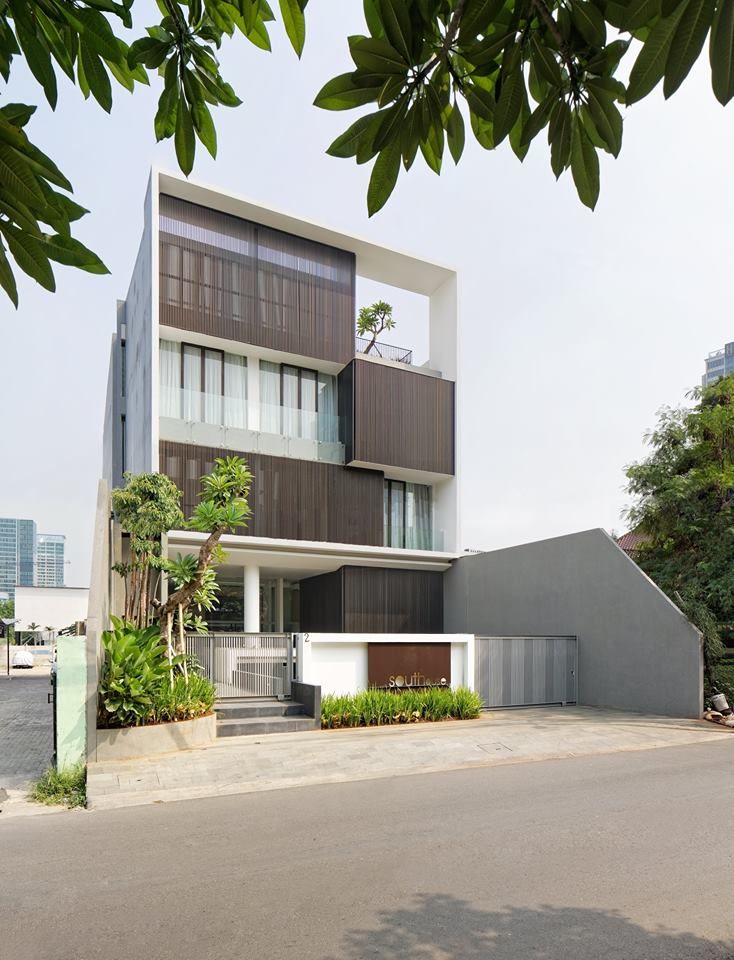
Modern house facade architecture is rapidly changing the way we design and experience homes. It’s no longer just about functionality; aesthetics are equally crucial in shaping the character of a house. Modern facades often showcase clean lines, minimalist aesthetics, and innovative materials. However, finding the right balance between beauty and functionality can be challenging. This article explores the latest trends and design principles to help you create a modern facade that is both beautiful and sustainable. We’ll delve into various elements, from material choices to light integration, offering practical examples and considerations. Finally, we’ll address potential issues and offer actionable steps to get your modern home started.
Understanding Modern House Facade Design Principles
Core Principles of Modern Facades
Modern house facade design emphasizes clean lines, minimalism, and a focus on functionality. Simple geometric shapes, smooth surfaces, and large expanses of glass are common elements. The emphasis is on maximizing natural light and ventilation, leading to energy efficiency and a welcoming atmosphere. Materials like glass, concrete, and steel are often used, reflecting the era’s emphasis on durability and efficiency. The use of innovative materials like sustainable wood and recycled materials is becoming increasingly prevalent, catering to environmentally conscious homeowners.
Material Choices for Modern House Facades
Innovative Material selection
Choosing the right materials plays a crucial function in creating a modern house facade that stands out. Glass, with its transparency and reflective qualities, is a popular choice, allowing natural light to flood the interior. Concrete, in its various forms, offers a raw, industrial aesthetic that can be polished to a sleek finish. Sustainable materials such as reclaimed wood, recycled metals, and environmentally friendly polymers are also gaining traction. These options often contribute to the house’s overall aesthetic and sustainability.
Case Study: The Glass House by Philip Johnson
A prominent example is the Glass House, designed by renowned architect Philip Johnson. Its entirely glass facade showcases the beauty and functionality of transparent materials. The structure allows maximum natural light penetration, which is crucial in sustainable design principles. Although not always practical for all homes, the house stands as a powerful demonstration of architectural artistry.
Incorporating Sustainable Practices in Modern Facades
Green Building Initiatives
Modern house facade architecture increasingly embraces green building principles. Using sustainable materials, reducing energy consumption, and minimizing environmental impact are key considerations. Smart glazing, efficient insulation, and appropriate shading devices are vital components of a modern facade design. Utilizing solar panels and rainwater harvesting systems can further reduce the environmental footprint of a home.
Integrating Technology into Modern House Facades
Smart Home Technologies
Technology plays a significant function in modern house facade architecture. Smart home attributes allow for control over lighting, ventilation, and security from a single device or interface. Smart technology can be integrated seamlessly into modern facades, offering advanced solutions for comfort, convenience, and security.
Lighting Design for Modern Facades
Enhancing Aesthetics
Strategic lighting design significantly impacts the aesthetic appeal and functionality of a modern facade. Properly placed exterior lights can highlight architectural details, create ambiance, and boost safety. By considering both ambient and accent lighting, designers can enhance the visual appeal and energy efficiency of the facade.
Incorporating Local Architectural Styles
Adapting to the Environment
Modern house facade architecture doesn’t have to disregard local architectural styles. It can thoughtfully integrate and adapt to the local context. By considering regional design elements and construction materials, designers can create homes that both embrace and celebrate the surrounding environment.
Cost-efficacy in Modern Facades
Balancing Aesthetics and Budget
While modern house facades can appear expensive, it is possible to create visually appealing modern designs without overspending. Smart choices in materials, careful planning, and a focus on sustainable design can significantly reduce costs.
Dealing with Potential Problems of Modern Facades
Addressing Challenges
Careful consideration and planning are essential in addressing potential challenges related to modern facade design. Factors such as material durability, maintenance requirements, and safety are vital considerations in selecting appropriate elements for the modern home.
Conclusion
Modern House Facade Architecture continues to evolve, offering innovative designs that enhance both aesthetics and functionality. Incorporating sustainable practices, integrating technology, and carefully selecting materials are key to achieving the perfect balance. The focus should remain on sustainability, energy efficiency, and building value. Let’s talk more about your vision and how we can create your dream modern home. Don’t hesitate to contact us today for a complimentary consultation! Modern home designs should not just be stunning, but also practical and long-lasting. Be prepared to explore various choices and ensure the design perfectly complements your lifestyle and budget.
In conclusion, modern house facade architecture offers a captivating blend of aesthetics and functionality. By thoughtfully integrating these elements, homeowners can create a residence that stands out and reflects their unique style. The key is understanding the interplay of form, material, and light to achieve a harmonious and visually appealing facade. Consider consulting with an architect or designer for a personalized approach and to explore varied possibilities and solutions tailored to your needs. Contact us today for a complimentary consultation and let’s design your dream home!